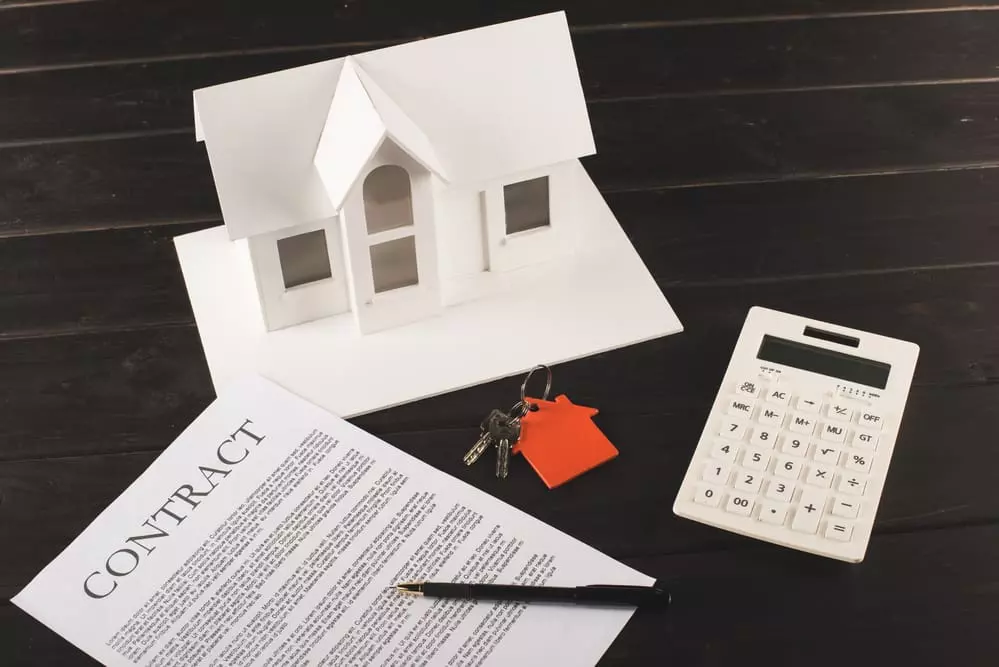If you've ever thought about venturing into the world of real estate investing but hesitated to take the plunge, wholesale real estate might be the perfect solution for you. Wholesale real estate allows you to dip your toes into the industry without the need for significant capital or experience. In this article, we will explore what wholesale real estate is, how it works, its pros and cons, and how you can get started in this exciting field.
What is Wholesale Real Estate?
Wholesale real estate involves an individual, known as a wholesaler, acquiring a contract from a property seller and assigning that contract to an end buyer. The wholesaler doesn't actually purchase the property but acts as a middleman, connecting motivated sellers with real estate investors who are seeking great deals. Wholesalers earn a fee for their services, typically a percentage of the overall property cost. This makes wholesale real estate an attractive option for both sellers and investors.
 Caption: Wholesale real estate provides the opportunity to connect motivated sellers with real estate investors.
Caption: Wholesale real estate provides the opportunity to connect motivated sellers with real estate investors.
How Does Wholesaling Work?
Wholesaling real estate involves three main steps: finding distressed or off-market properties, negotiating a contract with the seller, and assigning the contract to an end buyer for a profit.
The wholesaler identifies properties that are being sold for below market value or are in need of significant repairs. They negotiate a contract with the seller, which allows them to market the property to potential buyers. Once an end buyer is found, the wholesaler assigns the contract to them, allowing the buyer to assume the role of the buyer in the transaction.
There are two primary methods for closing a wholesale deal: assigning the contract or conducting a double closing. Assigning the contract involves selling the contract itself to the end buyer, while a double closing involves purchasing the property first and then selling it to the end buyer shortly afterward. Each method has its own advantages and considerations.
Assigning the Contract
Assigning the contract is the simpler and more common method of closing a wholesale deal. In this approach, the wholesaler sells the contract to the end buyer without actually purchasing the property themselves. The wholesaler receives a "finder's fee" once the transaction is completed. The key to success in assigning the contract is to ensure that the contract allows for assignment or selling to another party.
The Double Close
The double closing method is an alternative to assigning the contract when it is not permitted or feasible. With a double closing, the wholesaler purchases the property from the seller and immediately resells it to the end buyer. This method requires more coordination and carries additional costs, but it provides the flexibility to close deals that may not be assignable.
The Pros of Wholesaling Real Estate
Wholesale real estate offers several advantages for both beginners and experienced investors. Let's explore some of the main benefits:
1. Quick Profits
One of the most attractive aspects of wholesaling real estate is the potential to earn profits quickly. If you find a motivated seller and negotiate a favorable deal, you can assign the contract to an end buyer and close the transaction within 30 to 45 days or even less. This allows you to earn a substantial return on your investment in a relatively short period of time.
2. Low Barrier to Entry
Unlike other real estate investment strategies, wholesaling does not require significant capital or credit. As a wholesaler, you don't need to purchase the property or secure financing. Instead, you focus on finding great deals and connecting sellers with buyers. This makes wholesaling accessible to individuals with limited funds or credit history.
3. Learning Opportunities
Wholesaling real estate provides an excellent opportunity to learn about the market and gain valuable negotiation and networking skills. As a wholesaler, you'll have the chance to work with different types of properties and interact with motivated sellers and experienced investors. This hands-on experience can help you develop a deep understanding of the real estate industry and set you on the path to success.
The Cons of Wholesaling Real Estate
While there are many advantages to wholesaling, it's important to be aware of the potential challenges and downsides. Here are a few cons to consider:
1. Income Variability
Wholesaling is not a guaranteed source of income. It requires consistent effort, lead generation, and deal sourcing to ensure a steady flow of transactions. The amount of income you can earn as a wholesaler may vary from month to month, depending on the number and profitability of deals you close.
2. Finding Buyers
One of the key factors in a successful wholesale business is having a strong list of potential buyers. Without buyers, you won't be able to close deals and earn fees. Building and maintaining a reliable network of cash buyers can be a challenge, as it requires continuous networking and marketing efforts. It's essential to cultivate relationships with investors who have specific criteria for the types of properties they are interested in.
3. Managing Buyer Relationships
Once you've established a network of buyers, it's important to keep them engaged and informed. Each buyer may have different preferences and investment strategies. It's crucial to maintain a well-organized buyers list and tailor your offers to match their specific criteria. This requires ongoing communication and follow-up to ensure that your buyers remain interested and motivated to work with you.
Is Wholesaling Real Estate a Good Investment?
Wholesaling real estate is an excellent investment strategy for individuals looking to enter the real estate market with minimal financial resources and experience. It provides an opportunity to learn quickly about the industry, develop valuable negotiation skills, and generate income in a relatively short period of time. While wholesaling requires hard work and dedication, those who are willing to put in the effort can reap substantial rewards.
Wholesaling Real Estate vs. House Flipping: Which is Better?
House flipping and wholesaling are both popular real estate investment strategies, but they have distinct differences. House flipping typically requires more capital, time, and experience compared to wholesaling. Flippers purchase properties, invest in renovations and improvements, and resell them for a profit. On the other hand, wholesalers primarily focus on finding and assigning contracts to end buyers without the need for major renovations.
Each strategy has its own advantages and potential returns. Flipping can offer higher profits per deal, but it involves more risk, longer timelines, and greater financial commitments. Wholesaling, on the other hand, allows for quicker transactions and lower capital requirements, making it more accessible to beginners. Ultimately, the choice between wholesaling and flipping depends on your personal circumstances, resources, and risk tolerance.
 Caption: Wholesaling real estate provides an entry point for beginners in the real estate industry.
Caption: Wholesaling real estate provides an entry point for beginners in the real estate industry.
How to Wholesale Real Estate
If you're interested in getting started in wholesaling real estate, here are some steps to guide you:
-
Research your local market: Understand the real estate market in your area, including property values, trends, and potential investment opportunities.
-
Build a buyer's list: Create a list of potential buyers, including real estate investors and rehabbers, who are interested in purchasing wholesale properties in your desired location.
-
Secure financing: Determine the financing options that best suit your needs, whether it's self-funding, working with private lenders, or partnering with other investors.
-
Find sellers and properties: Use various strategies, such as networking, direct mail campaigns, and online listings, to locate motivated sellers and distressed or off-market properties.
-
Choose a closing method: Decide whether to assign the contract or conduct a double closing, based on the specific circumstances of each deal.
By following these steps and continuing to educate yourself about the real estate industry, you can lay a solid foundation for your wholesale real estate business.
How to Maximize Your Profits in Real Estate Wholesaling
To maximize your profits in wholesaling real estate, consider these important tips:
-
Think about the seller: Put yourself in the seller's shoes and understand their motivations and pain points. By demonstrating empathy and understanding, you can build rapport and negotiate favorable deals.
-
Be transparent: Honesty and transparency are crucial in a successful wholesale real estate business. Clearly communicate your intentions and be upfront about the process with both sellers and buyers.
-
Have an exit strategy: Determine your exit strategy and how you plan to make a profit from each deal. A solid buyer's list is essential for quickly turning over properties and consistently closing deals.
-
Keep everyone involved: Maintain open lines of communication with both the seller and the end buyer throughout the transaction. Providing updates and answering questions promptly will build trust and ensure a smooth closing.
-
Post-closing follow-up: After completing a deal, don't forget to follow up with all parties involved. Building strong relationships and maintaining contact can lead to future business opportunities and referrals.
Wholesale Real Estate FAQs
Wholesaling real estate can seem complex for beginners, but by understanding the basics, you can navigate the process successfully. Here are some frequently asked questions about wholesaling real estate:
What is a Wholesale Real Estate Contract?
A wholesale real estate contract is a legally binding agreement between a homeowner and an investor. It gives the investor the right to sell the property to an end buyer without actually transferring ownership. The contract typically includes the terms of the sale, the wholesaler's fee, and any contingencies.
Do I Need a License to Wholesale Real Estate?
No, you don't need a license to wholesale real estate. Unlike licensed agents, wholesalers don't represent buyers or sellers in a traditional real estate transaction. However, it's important to familiarize yourself with the laws and regulations in your state to ensure compliance.
Is Wholesaling Real Estate Legal?
Yes, wholesaling real estate is legal when done properly and in accordance with local laws and regulations. It's essential to be transparent and disclose your intentions to all parties involved in the transaction.
What is Virtual Wholesaling?
Virtual wholesaling is the practice of wholesaling properties remotely, without physically visiting the properties or meeting the buyers and sellers in person. It involves using technology and online resources to conduct the entire transaction.
How Do You Make Money Virtual Wholesaling?
Virtual wholesalers make money by assigning contracts remotely or completing double closings. They earn fees by connecting sellers with buyers and facilitating the transaction. Payment can be received through various methods, such as wire transfer or mail.
Summary
Wholesale real estate offers an excellent entry point for individuals interested in real estate investing. With low barriers to entry, the potential for quick profits, and valuable learning opportunities, wholesaling can be a rewarding venture. By understanding the process, maximizing profits, and staying informed, you can build a successful wholesale real estate business. So, why wait? Dive into the world of wholesale real estate and start your journey to financial freedom.
Ready to take the next step in your real estate investing journey? Click below to sign up for a free online real estate class and learn how to make the most of the current opportunities in the market!

















